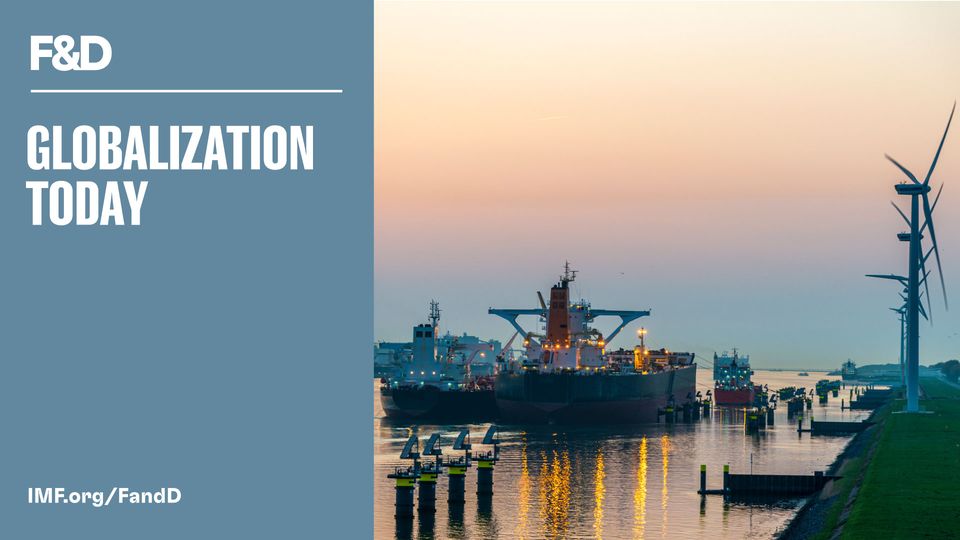Experts Advocate Trade Rules, Domestic Policies for Sustainable Globalization
As globalization faces new challenges, updated rules for international trade and stronger domestic policies could help make the global economy more inclusive and sustainable, argue economists Adam Jakubik and Elizabeth van Heuvelen.
For over a century, the forces of globalization have alternately united and divided nations, driven by geopolitics, ideology, and technological advancements. Today, globalization once again stands at a pivotal juncture.
This influential process, which connects the world economy through the flow of goods, services, investment, technology, data, ideas, and workers, is undergoing significant transformation.
Globalization, which began around 1870, gained momentum after World War II as countries reduced trade and capital flow restrictions. This era of economic integration was further propelled by technological innovations, such as container shipping and the rise of the internet, making cross-border business more feasible.
The benefits of globalization have been substantial. It has unlocked vast potential for economic value, increased production efficiency, and provided consumers with a wider array of affordable goods.
Developing economies have particularly benefited, integrating into global value chains without needing to develop complete industries domestically. During globalization’s expansion, world income levels converged, and poverty rates significantly dropped from 47% in 1980 to 16% in 2010.
However, globalization has also presented challenges. The transition to new production structures has been difficult for some workers and industries, especially in countries with inadequate labor market support and social insurance programs.
Lower-skilled workers often faced job losses or wage declines. Additionally, the globalization of finance has sometimes made the global economy more volatile.
Despite these challenges, newer metrics indicate that globalization has accelerated in certain areas, especially digital services. However, recent geopolitical tensions, the COVID-19 pandemic, and the war in Ukraine have led policymakers to reconsider globalization. Trade and foreign investment restrictions have surged, with industrial policies affecting a significant portion of global trade.
Jakubik and van Heuvelen argue that reversing globalization would reverse its gains, potentially increasing poverty and resulting in costly economic transitions. Instead, they propose that policymakers work together to preserve and extend globalization’s benefits while making it more sustainable.
Key recommendations include strengthening the World Trade Organization (WTO) to maintain trade openness and stability. This involves accelerating WTO reforms, enhancing transparency and rules, and updating regulations to reflect the growing importance of services and digital trade.
Domestically, stronger policies are needed to share the benefits of globalization more fairly. This includes sound macroeconomic governance, financial regulation, efficient tax systems, and labor market policies to address worker dislocations and inequality. High-quality public services in education, health, and social safety nets are also crucial.
International organizations play a vital role in promoting dialogue and cooperation, even amid geopolitical tensions. By acting as a buffer against unexpected circumstances and advocating for common rules, these organizations can help steer globalization towards a more inclusive and sustainable future.



